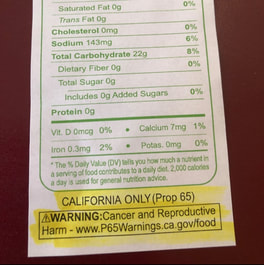
What is Prop 65?
Is it just another message
to be ignored
or does it mean something?
Here is the short answer.
Proposition 65 is a California Proposition enacted by a ballot initiative. Its proper name is The Safe Drinking Water and Toxic Enforcement Act of 1986. Although the Act is law only in the State of California, it often benefits others. The Proposition serves to reduce the use of toxins below the limits imposed by the Food and Drug Administration, FDA.
Corporations interested in doing business in California abide by the law in a couple of ways. #1 They may to reduce the toxicity of products, which is a benefit to all consumers and eliminate the need to warn California consumers, and #2 They can label their products with the Prop 65 warning so that they can sell with the same packaging globally. This turns out to be a win for those outside of California, since most manufacturers would rather produce only one formula and one type of packaging, giving others the benefits of reduced toxicity and improved labeling. The clue for consumers is that seeing the warning means there is definitely toxicity in the product.
Unfortunately, the Prop 65 warning label is often non-existent or so minute that it goes unnoticed. Enforcement is not perfect. To most who see the warning, it is just another post to be disregarded. Even most Californians have little understanding of the Act.
If you are a person who is seriously limiting toxicity, finding Prop. 65 information is important. For those sick, chronically ill or detoxing metals, the information can be vital to finding wellness.
If you find products, which include food, water, jewelry, medications, cosmetics, appliances, glassware, dishes, cooking utensils and more, with the label you are best to avoid it or get busy doing research. You cannot depend on labeling for the full story.
Many products do not carry visible information. If you absolutely need information, email companies and ask questions about toxicity. If you hear that the company follows FDA guidelines, consider it a red flag. That is not good enough, if you want to be sure the bar is lowered to at least California standards. Ask corporations if there is a Prop. 65 warning on their products when sold in California. Then be sure the answer it is put into writing.
To be sure, a Prop. 65 warning does not mean Non-Toxic. It only means the standards are higher and toxicity is lower than mandated by the FDA.
NOTE: The warning above was simple rice paper for making spring rolls. There were only five ingredients, yet they carry enough toxicity to have come under scrutiny.

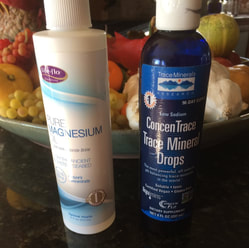

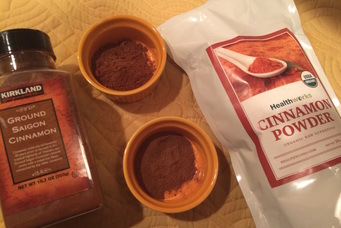

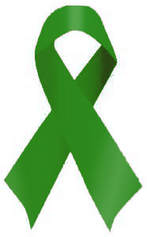
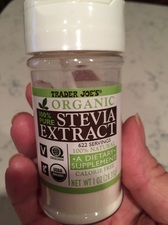
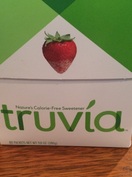


 RSS Feed
RSS Feed